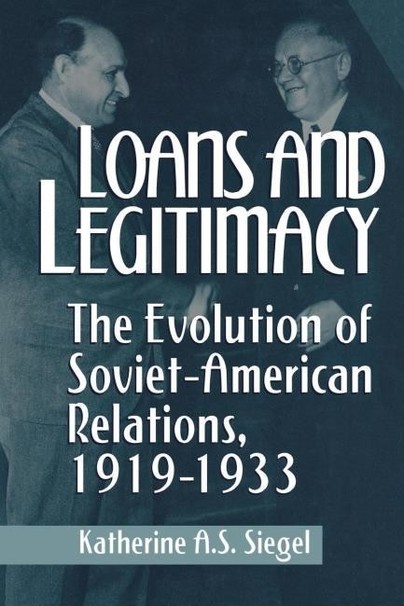Loans and Legitimacy (Paperback)
The Evolution of Soviet-American Relations, 1919-1933
Imprint: University Press of Kentucky
Pages: 240
Illustrations: illus
ISBN: 9780813160351
Published: 15th July 2014
Script Academic & Professional
Pages: 240
Illustrations: illus
ISBN: 9780813160351
Published: 15th July 2014
Script Academic & Professional
This book will be reprinted and your order will be released in due course.
You'll be £23.00 closer to your next £10.00 credit when you purchase Loans and Legitimacy. What's this?
+£4.99 UK Delivery or free UK delivery if order is over £40
(click here for international delivery rates)
Need a currency converter? Check XE.com for live rates
(click here for international delivery rates)
Need a currency converter? Check XE.com for live rates
In 1919 the Soviet government directed Ludwig Martens to open a trade bureau in New York. Before his deportation two years later, Martens had established contact with nearly one thousand American firms and conducted trade in the face of a stiff Allied embargo. His work planted the seeds for growing commercial ties between the U.S. and the U.S.S.R. throughout the 1920s.
Because the United States did not recognize the Soviet Union until 1933, historians have viewed the early Soviet--American relationship as an ideological stand-off. Katherine Siegel, drawing on public, private, and corporate documents as well as newly opened Soviet archives, paints a different picture. She finds that business ties flourished between 1923 and 1930, American sales to the Soviets grew twentyfold and American firms supplied Russians with more than a fourth of their imports. American businesses were only too eager to tap into huge Soviet markets.
Under the Soviets' New Economic Policy and first Five Year Plan, American firms invested in the U.S.S.R. and sold technical processes, provided consulting services, built factories, and trained Soviet engineers in the U.S. Most significantly, Siegel shows, this commercial relationship encouraged policy shifts at the highest levels of the U.S. government.
Thus when Franklin D. Roosevelt opened diplomatic relations with Russia, he was building on ties that had been carefully constructed over the previous fifteen years. Siegel's study makes an important contribution to a new understanding of early Soviet-American relations.
Other titles in University Press of Kentucky...















